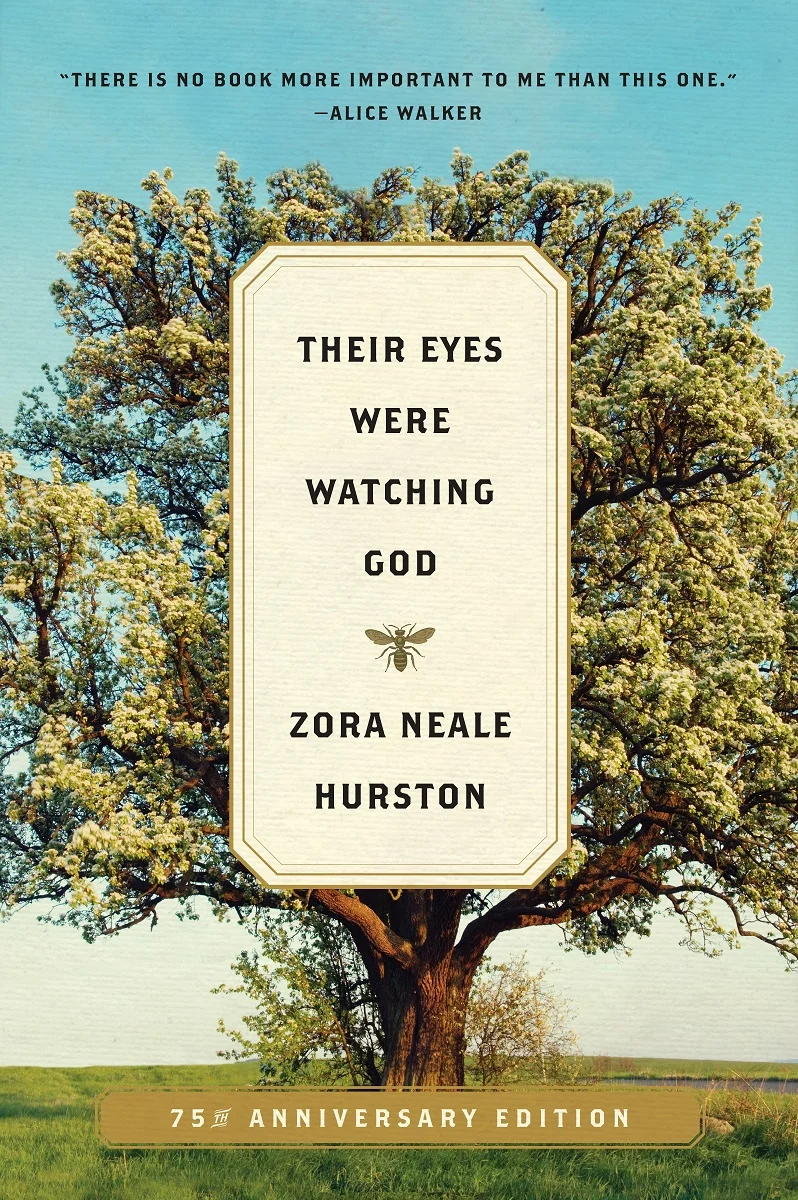Book Review: Their Eyes Were Watching God
In my course of American classics, nothing has been less spurious and unplanned as Zora Neale Hurston's Their Eyes Were Watching God. The title gave me a gentle shiver then. It gives me shivers now. I was perplexed about the history and cultish resurgence of the book. It drew me into something mysterious and frankly never let go.
Published in 1937, Their Eyes Were Watching God made a logical choice to follow 1936's Gone with the Wind. Both were written by females and the similarities to a large degree end then. A revered African-American work, Their Eyes Were Watching God was challenging, beautiful, and ultimately an unforgettable experience.
The Book
There are a number of technical things I'd love to say about Their Eyes Were Watching God, but they all seem superficial to the content and poetry of Hurston's writing. Following the female protagonist Janie Crawford through the course of her life, the full spectrum of grabbing life by its reins contra men, expectations, and even spoiled love get addressed in unique ways.
The story starts soberly as Janie is the child and grandchild of rape encounters perpetrated by white men. This background is not intended to simply amplify nefarious and disgusting behavior of slave owners but to provide a backdrop for Janie's beauty in a world perverted by colorism. Janie's physical attractiveness is influential in almost every element of the story and is presented immediately:
"The men noticed her firm buttocks like she had grape fruits in her hip pockets; the great rope of black hair swinging to her waist and unraveling in the wind like a plume then her pugnacious breasts trying to bore holes in her shirt." (pg. 2)
While the sexualization of her beauty by men plays a significant role in the story, it is the social element of her attractiveness—presented prominently in the character of Mrs. Turner—that demonstrate the power and problems associated with colorism:
"Anyone who looked more white folkish than herself was better than she was in her criteria...Mrs. Turner, like all other believers [of "gods"] had built an altar to the unattainable—Caucasian characteristics for all. Her god would smite her, would hurl her from pinnacles and lose her in deserts, but she would not forsake his altars. Behind her crude words was a belief that somehow she and others through worship could attain her paradise—a heaven of straighthaired, thin-lipped, high-nose boned white seraphs." (pg. 144-145)
This is just one example of Hurston's serious content within gorgeous poetic imagery. All of which is indicated from the opening words:
"Ships at a distance have every man's wish on board. For some they come in with the tide. For others they sail forever on the horizon" (pg. 1)
It is easy to reduce Janie Crawford's story is a "coming of age story;" but it is such in the most unexpected and (substantially) feminist way possible for the setting and time. Crawford's character arc in comparison to the Margrett Mitchell's Mrs. O'Hara is a literatry endeavor that I will have to put off for another time.
The Audiobook
Recorded by Ruby Dee, Their Eyes Were Watching God is an experience and treat. Dee does justice to the male and female vocal ranges within the book. She also provides great depth to the diction and dialects of the material setting. Her vocal dramatization of Hurston's dialogue improves one of the few shortcomings of the original material.
In conclusions, Their Eyes Were Watching God while not being the strongest literature I've consumed in this tour of American classics, is unquestionably one of the most enjoyable. Element's of Hurston's prose are nearly untouchable. Already a must read, the audio version from Dee is worth purchasing and appreciating. Avail yourself.
Favorite Quote:
"Janie’s first dream was dead, so she became a woman."








